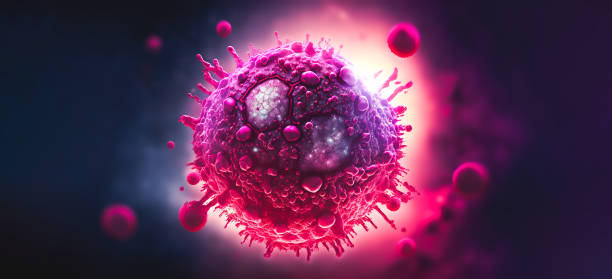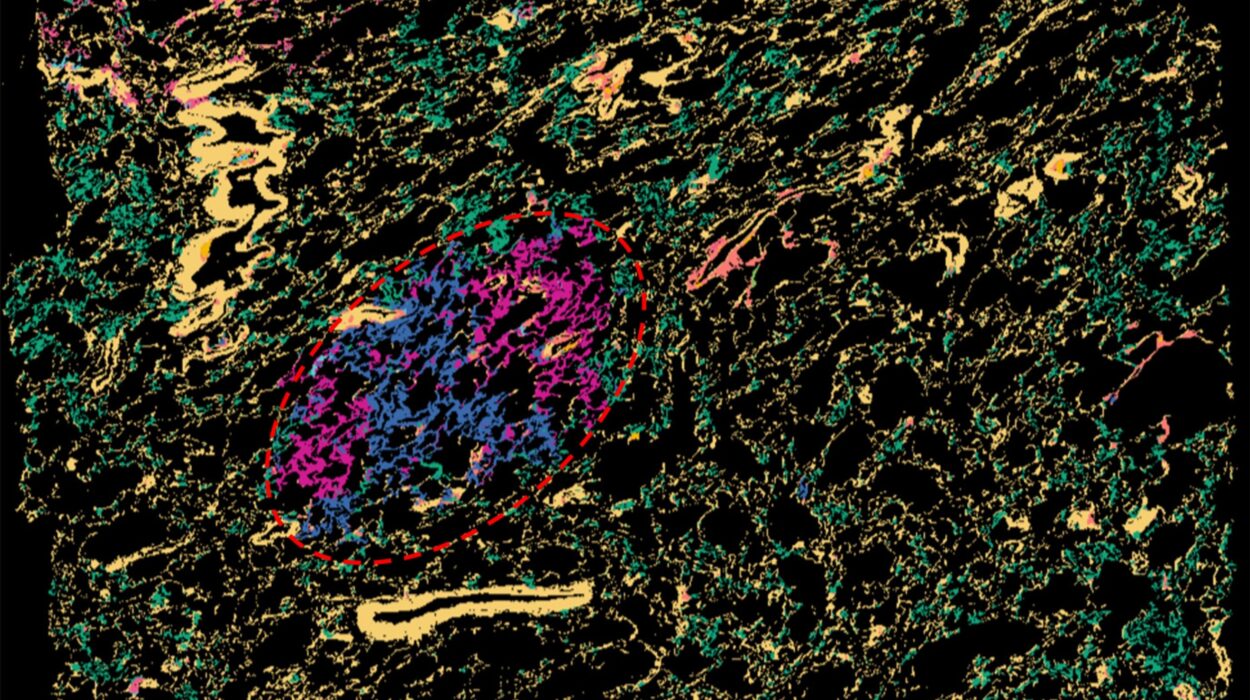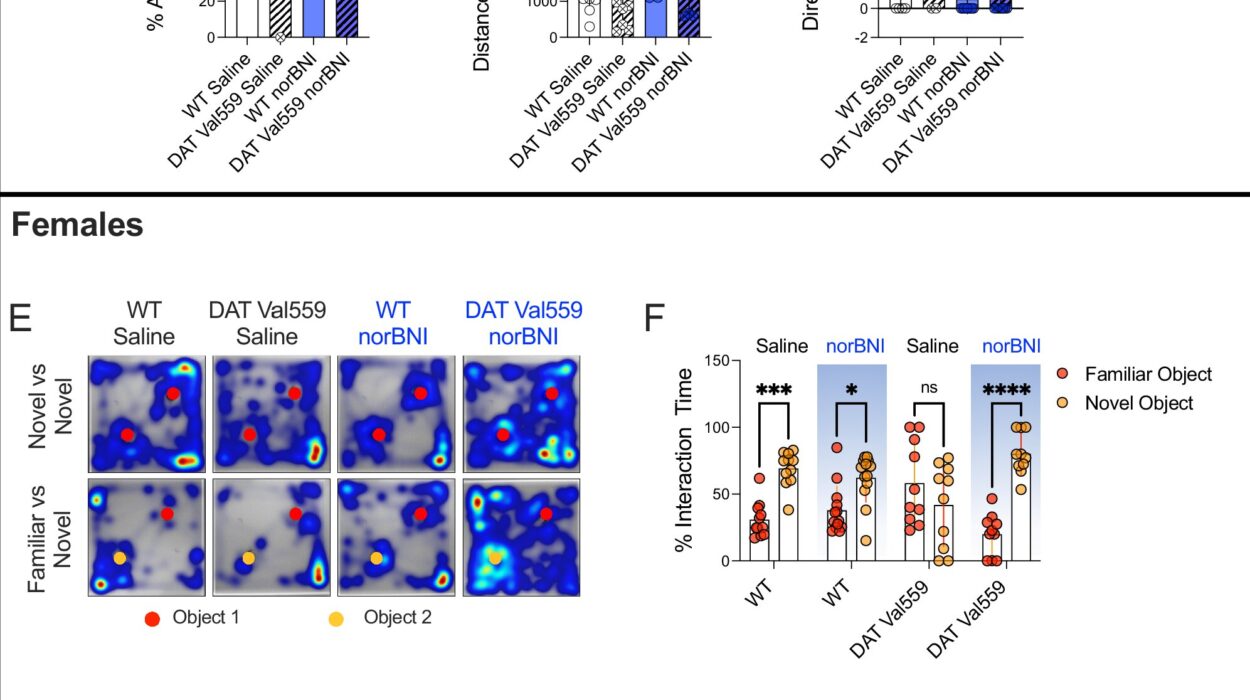When it comes to managing weight, we often blame willpower, calories, or carbs. We cut portions, join gyms, count macros, and experiment with fasts. But what if the real culprits—and allies—are the silent biochemical messengers coursing through our veins? Hormones, those tiny but mighty substances produced by your endocrine system, don’t just regulate your menstrual cycle, mood, and skin. They also play a powerful, sometimes sneaky role in your body’s ability to gain, lose, or maintain weight. And this influence isn’t always straightforward.
Whether it’s the sluggish pull of an underactive thyroid or the sugar-loving whisper of insulin, your hormonal health may be tipping the scale in more ways than you realize. This article unpacks how hormones affect your weight—not in a simplified or scary way, but in a full, deep-dive journey through your body’s inner chemistry, where each hormonal signal is a player in a complex metabolic orchestra. And like any orchestra, balance—not just volume—is everything.
Estrogen’s Double Life: Protector and Potential Saboteur
Let’s begin with one of the most well-known hormones in the female body: estrogen. This is the hormone that gives you curves, regulates your periods, and supports your bones. But estrogen also plays a crucial role in fat distribution, appetite control, and metabolism. In the right amounts, estrogen helps regulate your body weight. In fact, premenopausal women with balanced estrogen tend to have less abdominal fat and better insulin sensitivity than men or postmenopausal women.
But estrogen isn’t just a steady protector. When estrogen levels become too high or too low, the balance tips. In women with estrogen dominance—where estrogen outweighs its counterpart progesterone—there can be a tendency to store fat, especially in the hips and thighs. This may be the body’s way of maintaining hormonal balance by storing estrogen in fat cells, which can produce even more estrogen, continuing a frustrating feedback loop.
During perimenopause and menopause, when estrogen production plummets, many women notice a shift in where their bodies store fat. Weight gain often settles around the midsection, and muscle mass may decline, leading to a slower metabolism. It’s not just your imagination. It’s your hormones pivoting into a new phase—and your body trying to find a new balance.
Cortisol and the Weight of Modern Life
Stress doesn’t just affect your mood; it alters your metabolism at a molecular level. Cortisol, your primary stress hormone, is designed to help you survive emergencies. It raises blood sugar to provide quick energy, suppresses nonessential functions like digestion, and increases your brain’s use of glucose to help you respond to threats.
The problem is, modern life has a way of keeping cortisol constantly elevated. Between emails, traffic, bills, and sleepless nights, your body often thinks it’s in a state of emergency, even when it’s just trying to get through a Tuesday. Chronic high cortisol levels can lead to increased appetite, sugar cravings, and the stubborn accumulation of belly fat.
This fat, often called visceral fat, doesn’t just sit there quietly. It becomes metabolically active, secreting its own hormones and inflammatory signals that can worsen insulin resistance and further disrupt your hormone balance. Ironically, this makes weight loss harder, not easier, when you’re chronically stressed. Cortisol doesn’t just respond to stress—it creates a biological environment that makes fat storage the body’s priority.
Insulin: The Gatekeeper of Glucose and Fat Storage
Insulin is your body’s sugar chaperone. Secreted by the pancreas in response to carbohydrates, it helps move glucose out of your blood and into your cells, where it can be used for energy. But when insulin levels are consistently high—either due to a diet high in refined carbs and sugars, chronic stress, or underlying metabolic dysfunction—it becomes a fat storage hormone.
Over time, cells can become resistant to insulin’s message, leading the pancreas to produce even more insulin in an effort to keep blood sugar levels stable. This condition, known as insulin resistance, is a major contributor to weight gain, especially around the abdomen. It also makes it difficult to lose weight because high insulin levels keep your body in “storage mode,” making it hard to tap into fat stores for energy.
Polycystic ovary syndrome (PCOS), a condition tied to hormonal imbalance, is often associated with insulin resistance. Many women with PCOS struggle with weight that seems resistant to diet and exercise. That’s because until the insulin issue is addressed—often through a combination of nutrition, exercise, and sometimes medication—the weight won’t budge easily.
Thyroid Hormones: The Hidden Speedometer of Your Metabolism
Your thyroid gland is a small, butterfly-shaped organ in your neck that wields enormous power. It produces hormones—mainly T3 and T4—that regulate the speed of your metabolism, or how efficiently your body uses energy. When your thyroid is functioning well, your metabolism hums along, efficiently burning calories and maintaining energy balance.
But when thyroid hormone production drops—a condition known as hypothyroidism—your metabolism slows. This can lead to unexplained weight gain, fatigue, depression, and cold sensitivity. The reverse, hyperthyroidism, can cause weight loss, anxiety, and a rapid heartbeat, but this is less common.
Subclinical hypothyroidism, where thyroid levels are slightly low but not enough to trigger a diagnosis, can still cause symptoms, including stubborn weight gain. Women are particularly vulnerable to thyroid disorders, especially during periods of hormonal flux like pregnancy and menopause.
The challenge with thyroid-related weight gain is that it’s not purely a matter of energy balance. Even when you eat well and exercise, your sluggish metabolism may not burn calories as effectively. Restoring thyroid function—sometimes with medication, often with supportive nutrients like iodine, selenium, and zinc—can help, but it’s a complex puzzle that needs personalized attention.
Leptin and Ghrelin: The Yin and Yang of Appetite
Leptin and ghrelin are two hormones that govern hunger and fullness—and when they get out of sync, so does your weight. Leptin is produced by fat cells and tells your brain when you’re full. Ghrelin, produced in the stomach, signals hunger. In an ideal world, ghrelin rises before meals, prompting you to eat, and leptin rises afterward, telling you to stop.
However, in many people—especially those who are overweight—leptin levels are high, but the brain isn’t listening. This condition, known as leptin resistance, means the signal to stop eating doesn’t get through, and hunger persists despite ample energy stores. This can lead to overeating, especially of high-reward foods like sugar and fat, which further fuel the cycle.
Sleep deprivation, chronic stress, and processed food consumption can increase ghrelin and decrease leptin sensitivity, making it harder to regulate appetite. That’s why poor sleep or chronic stress can make you crave carbs, and why “just eat less” advice often backfires. Your hormonal signals are driving behavior on a deeper level than willpower alone can manage.
Progesterone: The Calm Regulator with Subtle Effects
Often overshadowed by estrogen, progesterone plays a quieter but equally important role in weight regulation. It promotes relaxation, supports sleep, and helps balance the effects of estrogen. During the second half of the menstrual cycle (the luteal phase), progesterone rises, often increasing appetite slightly. This is why many women experience cravings and an increased desire to eat in the days before their period.
When progesterone levels are low, particularly in estrogen-dominant states, women may experience bloating, fluid retention, and mood swings. The resulting fatigue and irritability can make healthy habits feel like a monumental task. Progesterone also influences insulin sensitivity, and low levels may impair your body’s ability to regulate blood sugar.
During menopause, progesterone drops sharply, often earlier than estrogen, contributing to sleep disturbances, increased stress sensitivity, and a slower metabolism. Supporting progesterone naturally—through adequate sleep, healthy fats, stress management, and sometimes bioidentical hormone therapy—can restore hormonal harmony and help support a healthier weight.
Testosterone and Muscle: More Important Than You Think
Though we often associate testosterone with men, women produce this hormone too—albeit in smaller amounts. Testosterone plays a critical role in maintaining muscle mass, bone density, and libido. And when it comes to weight management, muscle matters. More muscle means a higher resting metabolic rate, which means you burn more calories even at rest.
Low testosterone levels in women—whether due to aging, over-exercising, or stress—can lead to decreased muscle mass, increased body fat, and a sense of overall weakness or fatigue. It can also lead to insulin resistance, compounding weight issues.
On the other hand, high testosterone, often seen in PCOS, can lead to abdominal weight gain, acne, and hirsutism. The key is balance. Supporting healthy testosterone levels through strength training, balanced nutrition, and stress reduction can make a noticeable difference in how your body stores and uses energy.
The Menstrual Cycle and Weight Fluctuations
Weight gain around your period isn’t all in your head—or your fridge. The menstrual cycle causes predictable shifts in hormones that can temporarily affect your weight. During the luteal phase (the second half of the cycle), rising progesterone can lead to fluid retention, constipation, and increased appetite. Estrogen dips, and cortisol sensitivity increases, which may heighten cravings and mood swings.
This can cause the scale to jump by several pounds, even if your eating habits haven’t changed. It’s mostly water weight and gastrointestinal changes—not fat gain. Once your period starts, hormone levels drop and your body sheds excess water, returning to baseline. Understanding this pattern can help you approach these fluctuations with less anxiety and more compassion.
Pregnancy, Postpartum, and Weight Transformation
Pregnancy is a time of radical hormonal change, designed to support the development of new life. Weight gain during pregnancy is both necessary and expected. Estrogen, progesterone, insulin, and human placental lactogen all rise to prepare your body for birth and breastfeeding.
However, the postpartum period is often overlooked when it comes to hormonal recovery. Hormone levels drop rapidly after delivery, particularly estrogen and progesterone, which can contribute to fatigue, mood swings, and weight retention. Sleep deprivation, stress, and breastfeeding demands can further alter hunger and metabolism.
For many women, the months—or years—after giving birth become a time of hormonal rebalancing. It’s not just about “bouncing back” physically. It’s about supporting the body’s deep need to heal, rebuild, and regulate itself after a monumental event.
Menopause and the Metabolic Slowdown
Menopause is perhaps the most hormonally dramatic period of a woman’s life after puberty. The decline in estrogen and progesterone affects not just fertility but metabolism, mood, muscle mass, and fat distribution. Many women find themselves gaining weight despite no changes in diet or activity. The body, responding to the drop in estrogen, often stores more fat—particularly visceral fat around the abdomen—as a compensatory mechanism.
Simultaneously, muscle mass naturally declines with age, lowering basal metabolic rate. Sleep disturbances, hot flashes, and increased insulin resistance add to the challenge. This is a time when many women need to shift from weight loss at all costs to metabolic support, muscle preservation, and hormonal balance.
Nutrition, movement, strength training, sleep hygiene, and stress management become more critical than ever—not to achieve a certain look, but to support the body through this powerful transition.
If your weight feels stubborn despite your best efforts, it’s not just about calories in and calories out. It may be about decoding what your body is trying to tell you through symptoms, cycles, cravings, and emotional cues. Hormones are not villains. They’re messengers, constantly communicating the status of your body’s inner world. The key is learning how to listen—and then respond with support, not punishment.
When you feel exhausted even after a full night’s sleep, when you gain weight without changing your diet, when your hunger feels ravenous one day and nonexistent the next, these are all signs your hormonal orchestra might be playing out of tune. Instead of trying to silence the noise with restrictive dieting or grueling workouts, the more compassionate and effective approach is to rebalance the system itself.
Nourishment That Talks to Your Hormones
Your hormones don’t exist in isolation from your food. They are built from it. Every bite you eat has the potential to either soothe or stress your endocrine system. Highly processed foods rich in sugar, refined oils, and additives can spike insulin, increase inflammation, and create hormonal chaos. On the other hand, nutrient-dense, whole foods provide the building blocks for healthy hormone production and communication.
Proteins help regulate appetite hormones like ghrelin and support muscle maintenance, which keeps your metabolism strong. Healthy fats—like omega-3s from fish, flaxseeds, or walnuts—support hormone synthesis, especially sex hormones like estrogen and progesterone. Fiber from vegetables, fruits, and legumes feeds your gut microbiome, which directly influences estrogen metabolism and inflammation.
Eating in a way that supports blood sugar balance—think high-quality protein, healthy fats, and fiber at every meal—can stabilize insulin and cortisol. This reduces cravings, prevents energy crashes, and helps your body return to a state of metabolic peace. Instead of chasing weight loss, you’re nourishing hormonal harmony—and weight balance becomes a natural outcome.
Movement That Matches Your Cycle and Phase
Exercise is a form of hormonal communication. But not all movement is created equal for all bodies at all times. For instance, high-intensity interval training (HIIT) can be fantastic for insulin sensitivity and fat burning—but if you’re already overwhelmed by cortisol from stress, it can tip you further into imbalance.
Gentler forms of movement like walking, yoga, or Pilates support hormone regulation by reducing cortisol and enhancing insulin sensitivity without overstressing the body. Strength training, particularly for women over 35, becomes a critical tool. It helps build lean muscle, counteract the muscle loss associated with menopause, and boosts resting metabolism.
If you’re menstruating, syncing your workouts with your cycle can also make a difference. During the follicular phase (after your period and before ovulation), your estrogen levels are rising, and energy is typically high—this can be a great time for more intense workouts. In the luteal phase (after ovulation), progesterone rises and energy may wane—gentler movement may feel better. Learning to cycle with your hormones instead of forcing your body into one routine can make exercise more enjoyable and sustainable.
Sleep: The Hormonal Reset Button
There’s no substitute for sleep when it comes to hormone health. During deep, restorative sleep, your body resets cortisol levels, balances ghrelin and leptin, and repairs tissues. Just one night of poor sleep can increase ghrelin (hunger hormone), reduce leptin (satiety hormone), and increase insulin resistance.
Sleep deprivation also raises cortisol, creating a stress response that encourages fat storage—especially in the belly. It becomes a vicious cycle: stress and hormonal imbalance disrupt sleep, and disrupted sleep worsens hormonal imbalance.
Prioritizing sleep isn’t just about weight. It’s about allowing your body the space it needs to repair, regulate, and recalibrate. Establishing consistent sleep routines, reducing evening screen time, and supporting melatonin production with darkness and relaxation can have profound effects on hormonal rhythms.
Gut Health and Hormones: The Unseen Connection
The bacteria in your gut do more than digest food. They help regulate estrogen, influence inflammation, produce neurotransmitters, and even affect cortisol levels. An unhealthy gut microbiome can contribute to estrogen dominance, insulin resistance, and systemic inflammation—all of which can affect your weight.
Constipation, bloating, food intolerances, and unexplained fatigue are all clues that your gut—and therefore your hormones—may be struggling. Eating a diet rich in prebiotics (like garlic, onions, and asparagus), fermented foods (like sauerkraut and yogurt), and reducing sugar and processed food can help restore microbial balance.
Your gut also houses the estrobolome—a collection of bacteria specifically involved in metabolizing estrogen. When this system is out of balance, estrogen can recirculate in your body, worsening symptoms like bloating, PMS, and weight gain. Supporting your gut means supporting the very machinery that processes your hormones.
The Role of Toxins in Hormonal Confusion
We live in a world full of chemicals—plastics, pesticides, preservatives, perfumes. Many of these substances are endocrine disruptors, meaning they mimic, block, or interfere with natural hormone production and signaling. These “hormone imposters” can be found in skincare products, cleaning supplies, non-stick cookware, and even receipts.
Compounds like BPA (found in plastics) and phthalates (found in fragrances) can contribute to estrogen dominance, disrupt thyroid function, and impact metabolic health. Over time, this chemical burden can add up—especially in bodies already vulnerable to hormonal imbalance.
Detoxification is often misunderstood. It’s not about juice cleanses or starvation. It’s about supporting your liver and elimination pathways (sweat, urine, stool) so your body can process and eliminate excess hormones and toxins. This includes drinking enough water, eating cruciferous vegetables like broccoli and kale, getting regular movement, and supporting regular bowel movements.
The Emotional Side of Hormonal Weight
Weight is rarely just about the body. It’s also about emotions—how we soothe stress, celebrate joy, or hide pain. Hormones like cortisol, serotonin, dopamine, and oxytocin don’t just regulate metabolism. They shape how we feel. And how we feel often determines how we eat, move, sleep, and care for ourselves.
Emotional eating is real. So is food restriction as a way to feel in control. When we feel overwhelmed, our bodies crave comfort, and our hormones are designed to help us survive—not necessarily to look a certain way. Healing your relationship with food, your body, and your worth is an essential part of balancing your hormones.
Mindfulness practices, therapy, breathwork, journaling, and community support are not soft options—they are powerful hormonal tools. They help calm cortisol, increase serotonin and oxytocin (feel-good hormones), and support the parasympathetic nervous system, which governs digestion, rest, and hormonal repair.
Functional Testing: Getting to the Root
Sometimes, you need to go beyond symptoms and get objective data. Functional hormone testing can provide insights into where your imbalances lie. Blood tests, saliva panels, and Dutch tests (urine-based) can reveal how your body is producing, metabolizing, and eliminating hormones.
These tests can show if your cortisol is too high or too low, if you’re not converting thyroid hormones properly, if your estrogen is being detoxified effectively, or if your progesterone is declining. With this information, you can create a personalized plan—through lifestyle, nutrition, supplementation, or medication—that works with your body, not against it.
Functional medicine practitioners, naturopathic doctors, and some integrative gynecologists can help interpret these results and guide you on your healing journey.
Small Shifts, Big Impact
The beauty of hormones is that they’re not static. They respond to your environment, your thoughts, your choices. And while this can feel overwhelming, it’s also empowering. You’re not stuck with your current hormone profile. You have the power to shift it.
Small, consistent changes—like getting 20 minutes of sunlight each morning, swapping soda for sparkling water, or going to bed 30 minutes earlier—can create ripple effects in your hormonal landscape. Healing doesn’t have to be extreme. It has to be sustainable.
When your hormones are balanced, weight becomes less of a battle and more of a barometer. Your energy rises. Your cravings settle. Your moods stabilize. You feel more at home in your body—not because you forced it into submission, but because you learned how to listen and respond with care.
The Weight of Understanding
Weight is often treated as a simple equation, a visible metric of health or discipline. But your weight is not just about food or fitness. It’s about the intricate, beautiful dance of hormones that determine how your body stores energy, regulates hunger, and maintains equilibrium.
When you begin to see weight through the lens of hormones, you unlock a deeper, more compassionate understanding of your body. You see that your body isn’t fighting you—it’s protecting you, signaling you, and trying to guide you back into balance.
This journey isn’t about achieving a number on a scale. It’s about restoring your body’s harmony, rebuilding your trust in yourself, and creating a lifestyle that supports vitality—not just vanity. It’s about turning down the noise of societal pressure and tuning into the subtle, powerful wisdom of your own hormonal rhythm.
When you learn to honor your hormones, you’re not just losing weight—you’re gaining insight, strength, and sovereignty over your health.






